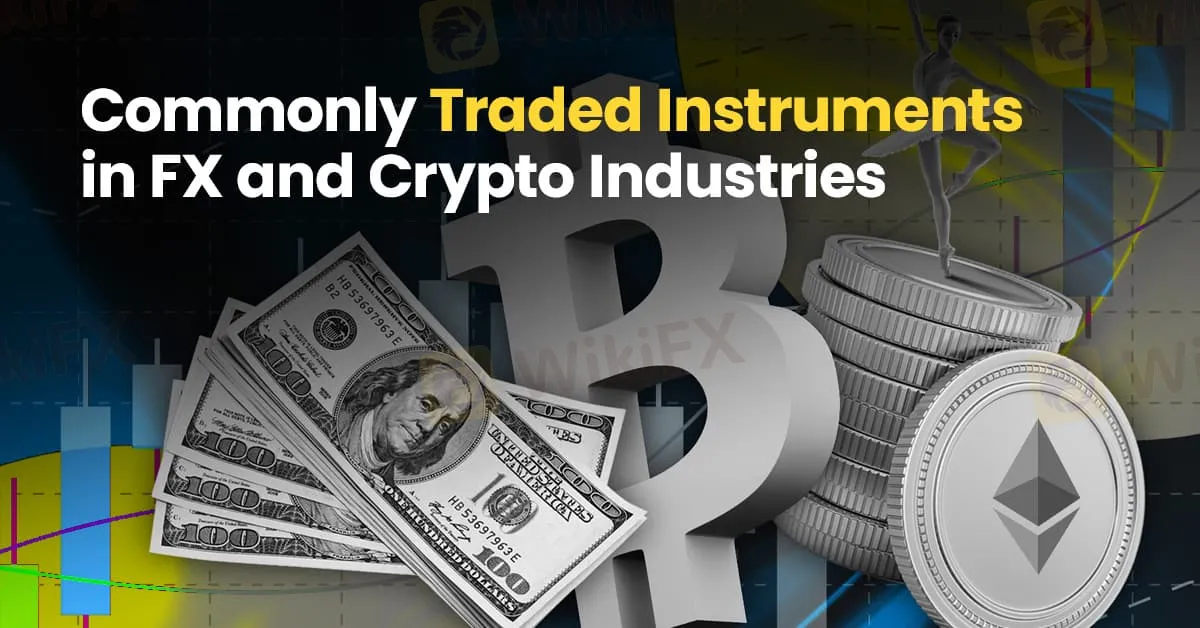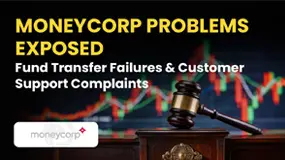Abstract:In the dynamic realm of online trading, the variety of instruments available to traders is vast. From traditional forex pairs to emerging cryptocurrencies, understanding the commonly traded instruments can enhance your trading strategy and broaden your investment horizons. Here, we delve into the most popular instruments in the forex and cryptocurrency markets, exploring their unique characteristics and the opportunities they offer.

In the dynamic realm of online trading, the variety of instruments available to traders is vast. From traditional forex pairs to emerging cryptocurrencies, understanding the commonly traded instruments can enhance your trading strategy and broaden your investment horizons. Here, we delve into the most popular instruments in the forex and cryptocurrency markets, exploring their unique characteristics and the opportunities they offer.
In the dynamic realm of online trading, the variety of instruments available to traders is vast. From traditional forex pairs to emerging cryptocurrencies, understanding the commonly traded instruments can enhance your trading strategy and broaden your investment horizons. Here, we delve into the most popular instruments in the forex and cryptocurrency markets, exploring their unique characteristics and the opportunities they offer.

Forex trading, or foreign exchange trading, is the largest financial market globally. It involves trading currency pairs, where one currency is exchanged for another. Here are the most commonly traded forex pairs:
Major Pairs:
1. EUR/USD (Euro/US Dollar): This is the most traded currency pair in the world. Its high liquidity and low volatility make it a favourite among traders.
2. USD/JPY (US Dollar/Japanese Yen): Known for its significant trading volume, this pair is influenced by economic policies and market sentiment in the US and Japan.
3. GBP/USD (British Pound/US Dollar): Often referred to as “Cable,” this pair is known for its volatility and the impact of UK economic data and Brexit developments.
4. USD/CHF (US Dollar/Swiss Franc): This pair is considered a safe haven during market turmoil due to the Swiss francs stability.
Cross Pairs:
These pairs do not include the US dollar but involve major currencies, such as:
1. EUR/GBP (Euro/British Pound): This pair reflects the economic relationship between the Eurozone and the UK.
2. EUR/JPY (Euro/Japanese Yen): This pair is popular for carry trades, where traders benefit from the interest rate differential between the two currencies.
Exotic Pairs:
Exotic pairs involve a major currency and a currency from a developing or smaller economy. Examples include:
1. USD/TRY (US Dollar/Turkish Lira): Known for its high volatility and potential for significant profit, but also higher risk.
2. EUR/PLN (Euro/Polish Zloty): This pair offers opportunities tied to the economic performance of Poland relative to the Eurozone.

Cryptocurrency trading has surged in popularity, offering a decentralized alternative to traditional currencies. Here are the most commonly traded cryptocurrencies:
Bitcoin (BTC): Bitcoin is the first and most well-known cryptocurrency. It serves as a digital gold standard in the crypto world. Due to its widespread adoption and high liquidity, BTC is a staple in many trading portfolios.
Ethereum (ETH): Ethereum is more than just a cryptocurrency; its a platform for decentralized applications (dApps). ETH's price movements are driven by its use case in smart contracts and the overall health of the blockchain ecosystem.
Ripple (XRP): Ripple focuses on enabling real-time, cross-border payments with minimal transaction fees. Its unique consensus algorithm differentiates it from other cryptocurrencies, making it attractive for institutions.
Litecoin (LTC): Often considered the silver to Bitcoin‘s gold, Litecoin offers faster transaction confirmation times. It’s popular among traders for its similarities to Bitcoin but with some technical differences that enhance its efficiency.
Binance Coin (BNB): Initially created to pay for fees on the Binance exchange, BNB has evolved to offer various use cases within the Binance ecosystem. Its growing utility has made it a prominent player in the crypto market.
Stablecoins: Stablecoins like Tether (USDT) and USD Coin (USDC) are pegged to traditional currencies (usually the US dollar) and offer stability amidst the volatility typical of the crypto market. They are used for trading and as a store of value.
While forex and cryptocurrencies are primary focuses, many traders also engage in commodities and indices:

1. Gold (XAU/USD): A traditional safe-haven asset that traders flock to during economic uncertainty.
2. Oil (WTI and Brent Crude): Prices are influenced by geopolitical events, supply and demand dynamics, and OPEC decisions.

1. S&P 500: This index represents the performance of 500 large companies listed on stock exchanges in the United States.
2. NASDAQ 100: Focuses on the 100 largest non-financial companies listed on the NASDAQ stock exchange, heavily weighted towards technology.
In conclusion, understanding the commonly traded instruments in the forex and cryptocurrency markets is crucial for any trader. Each instrument comes with its own set of characteristics, influencing factors, and risk-reward profiles. By diversifying your trading portfolio across different instruments, you can better manage risk and capitalize on a broader range of market opportunities. Whether you are trading major forex pairs, diving into the world of cryptocurrencies, or exploring commodities and indices, a well-rounded knowledge base is essential for success in the dynamic trading landscape.














